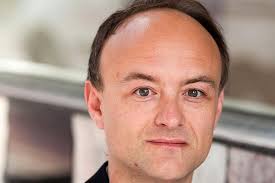How to Turn around Political Punditry? January 21, 2017
Author: Beach Combing | in : Actualite , trackbackThe most interesting thing that Beach has read so far in 2017 has been Dominic Cumming’s extraordinary piece for the Spectator on fighting a modern political campaign. The campaign he had in mind was the Brexit referendum in June 2016. Cummings gives 20,000 words to the fight over Europe in the UK, but to the tactics much more than to the politics of the campaign: those on both sides of the debate have read the article with interest and without too much irritation. Among the many fascinating suggestions that Cummings makes is this one for improving the poor level of political punditry in Britain, though there is no reason that it could not be applied to the rest of the world.
[TV] Shows should require precise quantitative predictions about well-formed questions… Newspapers should do the same when interviewing people. The next step is using this process to push people towards admitting conditional errors like ‘if I am proved wrong about X by date Y then I will admit I was wrong to claim Z’. If political shows pushed their guests to do this and kept track of the predictions it could have a big positive effect. (Next time they come on you can flash up their record on a screen so the public can see how often they are right.) It is vital to change incentives so people are encouraged to admit errors and learn instead of fooling themselves constantly. For those who refuse it would be easy to develop a protocol that categorises their vague comments and puts numbers on them. This will push them to ‘correct the record’.
This idea is attractive for two reasons. First, because politicians and, shamefully, experts make predictions and forecasts as a form of warfare, often without really believing in the predictions that they come up with: they are more interested in the effect that these predictions will have on the general public. Second, even the best experts in political or social or economic matters have extremely poor form and being able to show the public this should help puncture the cult of the expert: experts should be judged on how much the best in their field know about said field; and to what extent they benefit from the status quo.
Would it work though? The obvious thing to do would be to take a single television program and use the format there. The program would slowly, over three or four years, winnow out the experts who get things wrong. What would be the result? drbeachcombing At yahoo Dot com Beach suspects that you would have a series of rather uncharismatic, toothy men and women, with dandruff on their shoulders, twittering in sentences that the public barely understood…Perhaps this is the problem with Cumming’s suggestion: his very fine mind has made the fatal mistake of thinking that the rest of the world will choose people like him over outrageous but colourful shysters?



